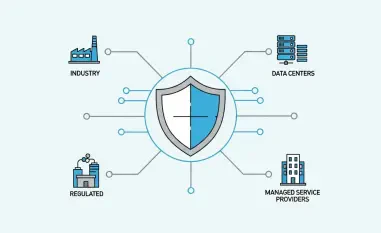Setting the Stage for VPN Security Challenges
Imagine logging into a Virtual Private Network (VPN) app to secure a sensitive business transaction or bypass restrictive internet censorship, only to discover that the very tool promising protection is riddling your data with vulnerabilities. In an era where online privacy is paramount, VPNs have become indispensable for millions globally, with hundreds of millions of downloads on platforms like Google Play. These applications are marketed as shields against surveillance and barriers to access, yet recent in-depth research has exposed alarming security flaws that threaten the very essence of their purpose. This review delves into the critical shortcomings of numerous VPN apps, uncovering the risks they pose to unsuspecting users.
The reliance on VPN technology has surged as individuals and organizations seek to safeguard their digital footprints from prying eyes. With the proliferation of cyber threats and government-imposed internet restrictions, these apps are often seen as a lifeline for secure browsing. However, the stark reality is that not all VPNs deliver on their promises, and many harbor significant weaknesses that could compromise user data. This analysis aims to dissect these issues, providing a comprehensive look at the technology behind VPN apps and the pressing need for heightened scrutiny.
In-Depth Analysis of VPN Technology and Performance
Persistent Weaknesses in Encryption Standards
A fundamental flaw in many VPN applications lies in their use of outdated encryption methods, particularly the Shadowsocks protocol. Originally engineered to evade censorship mechanisms like China’s Great Firewall, Shadowsocks falls short when it comes to ensuring privacy due to its antiquated security features. Apps such as Turbo VPN and VPN Proxy Master, among others, rely on this protocol, leaving user data vulnerable to decryption and interception by malicious entities. Such weaknesses undermine the core functionality of VPNs as secure conduits for online activity.
Beyond the protocol itself, the risks associated with weak encryption are compounded by susceptibility to traffic interference. Connection inference attacks and packet injection are real threats that can expose sensitive information during transmission. This technological shortfall is not just a minor glitch but a systemic issue affecting a broad swath of VPN services, highlighting the urgent need for modernized encryption standards to protect users from evolving cyber threats.
Code Overlaps and Hardcoded Security Risks
Another critical concern in VPN app technology is the widespread presence of shared code and hardcoded passwords across multiple services. Providers like Innovative Connecting and Autumn Breeze, despite presenting themselves as distinct entities, exhibit significant overlaps in their app dependencies and security configurations. This shared infrastructure, evident in apps like VPN Monster and Snap VPN, creates a fertile ground for attacks, as a single exploited vulnerability can cascade across numerous services.
These code similarities also point to hidden connections among providers, raising questions about the integrity of their operations. Hardcoded passwords, a glaring security misstep, further exacerbate the risk, making it easier for attackers to gain unauthorized access to user data. This lack of originality and robust design in app development reveals a troubling trend in the VPN market, where convenience often trumps security, leaving users exposed to significant dangers.
Unethical Data Collection Practices
Privacy, the cornerstone of VPN appeal, is frequently violated through unauthorized data collection by many apps. Research has uncovered that numerous VPN services harvest user location data without explicit consent or transparent disclosure, directly contradicting their marketed purpose. This practice not only erodes trust but also poses substantial ethical concerns, as users are often unaware of how their personal information is being utilized or shared.
The implications of such data collection extend beyond mere privacy breaches, impacting user confidence in the technology itself. When VPNs, tools meant to anonymize and protect, engage in practices that mirror the surveillance they claim to prevent, the betrayal is profound. Addressing this issue requires not just technological fixes but a fundamental shift in how VPN providers approach user consent and data handling, ensuring transparency becomes a non-negotiable standard.
Opaque Provider Affiliations and Infrastructure
Transparency, or the lack thereof, is a pervasive issue in the VPN ecosystem, with many providers obscuring their true affiliations and operational bases. Shared IP addresses and infrastructure among companies like Matrix Mobile PTE LTD and Hong Kong Silence Technology Limited suggest a coordinated network that belies their public claims of independence. Such hidden ties, often linked to entities like the sanctioned Chinese cybersecurity firm Qihoo 360, create a web of deception that misleads users about the origins of their chosen services.
This opacity in ownership and operations complicates the ability of users to make informed decisions about the apps they trust with their data. The use of deceptive tactics to hide connections and evade automated security checks further aggravates the problem, casting doubt on the credibility of the VPN market. Unraveling these obscured affiliations is essential to restoring faith in the technology and ensuring that users are not unwittingly compromised by untrustworthy providers.
Scale of Impact and Real-World Consequences
The sheer scale of affected users is staggering, with over 760 million downloads of vulnerable VPN apps on Google Play alone, spanning a vast global audience. This widespread adoption means that the security flaws in these applications have far-reaching consequences, potentially exposing personal and sensitive information during critical online activities. Whether it’s a journalist working in a restrictive regime or a business executive handling confidential deals, the risks are tangible and severe.
Real-world scenarios paint a grim picture of what these vulnerabilities can lead to, from data breaches that compromise identities to targeted surveillance in regions with limited digital freedoms. The betrayal of VPNs as tools for security becomes most evident when users face dire consequences due to flaws that should have been addressed at the development stage. This widespread impact underscores the critical need for immediate action to mitigate risks and protect the global user base.
Market and Regulatory Hurdles in VPN Development
Securing VPN technology is fraught with challenges, both technical and market-driven. Updating protocols like Shadowsocks to meet contemporary privacy demands is a complex endeavor, requiring significant resources and expertise that many providers lack. The proliferation of substandard or deceptive apps on platforms like Google Play, often due to inadequate vetting processes, further complicates the landscape, allowing insecure services to thrive unchecked.
Regulatory and ethical hurdles also loom large, as the lack of stringent oversight enables questionable data practices and obscured provider connections to persist. The absence of accountability mechanisms means that many VPN apps operate in a gray area, prioritizing profit over user safety. Addressing these systemic issues demands a collaborative effort between technology developers, app stores, and regulators to establish and enforce higher standards for VPN services.
Reflecting on VPN Security and Charting the Path Forward
Looking back on this comprehensive review, it is evident that the VPN app ecosystem faces profound challenges stemming from outdated encryption, shared code vulnerabilities, unethical data practices, and a lack of transparency among providers. The scale of impact, with millions of users at risk, paints a sobering picture of a technology that often falls short of its protective promises. Each flaw, from weak security protocols to hidden affiliations, contributes to a broader narrative of distrust and danger within the industry.
Moving forward, actionable steps emerge as crucial for rectifying these issues. VPN providers need to prioritize the adoption of robust encryption standards and eliminate practices like hardcoded passwords, while app stores must implement stricter vetting to filter out insecure applications. For users, the lesson is to seek out services with clear transparency and proven security measures, perhaps guided by independent audits or reviews.
Beyond immediate fixes, the industry stands at a crossroads where long-term innovation could redefine trust in VPN technology. Exploring partnerships with cybersecurity experts and investing in consumer education about secure app selection offer promising avenues for change. As the digital landscape continues to evolve, ensuring that VPNs truly serve as bastions of privacy requires a collective commitment to integrity and accountability, setting a new benchmark for safety in online protection tools.













